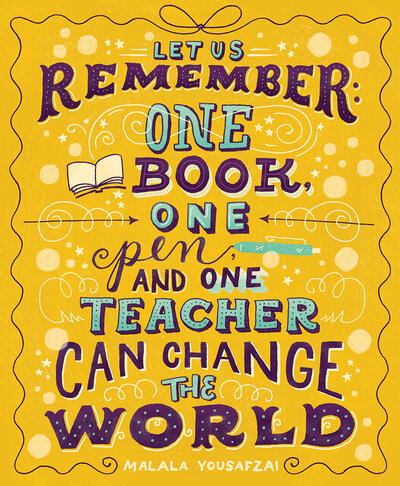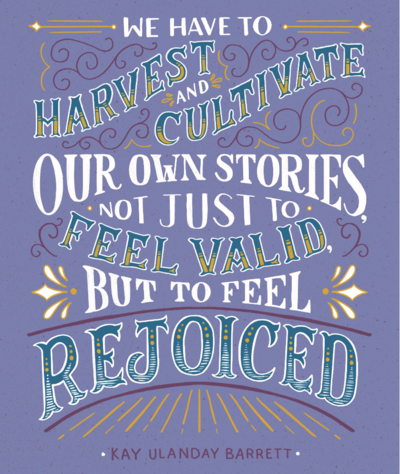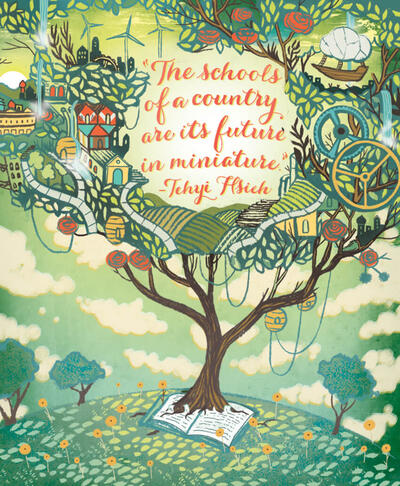Celebrate Asian American Pacific Islander Heritage (AAPI) Month by learning about the experiences of AAPI communities and exploring their impact on the United States. We hope you’ll uplift the diverse histories, cultures, identities and stories of AAPI communities — not only in May but all year round.
[Updated May 2025]
History, Culture and Identity
Humanizing Asian Americans in the Classroom Through Children’s Literature
[2021] Asian American stories are often absent from classroom libraries. In this article, one educator explains why this gap is so harmful and recommends ways to fix it.
Madam Vice President Is a Woman of Color
[2020] The election of a biracial, Black, South Asian daughter of immigrant parents to the vice presidency is a historic moment for all of us — especially girls and women of color.
We Still Haven’t Learned From This
[2020] Japanese American incarceration stories are American stories that need to be told.
Teaching Asian American and Pacific Islander Heritage
[2019] This webinar unpacks the origins, meaning and contemporary impact of the term “Asian American Pacific Islander,” breaks down the “model minority” myth, and offers resources to effectively teach AAPI history.
A Remote Control for Learning
[2018] Artist, author and educator Gene Luen Yang speaks with LFJ (formerly Teaching Tolerance) about teaching, comics and the importance of diverse characters.
(In)Visible Identity
[2018] Sikhs have been in the United States for more than 125 years, but our collective lack of knowledge about this religious group leaves Sikh students vulnerable.
Teachers, Check Your Texts
[2017] LGBTQ+ Asian identities need to be amplified in the school curriculum — and not just during a heritage month.
I Am Asian American and Toolkit
[2013] Uncover the true diversity beneath the Asian American label in this article. The toolkit provides resources to help teachers reflect on their own assumptions and knowledge gaps about Asian Americans and include a variety of Asian American voices in their curricula.
Addressing Anti-Asian Bias
Understanding Antisemitism and Islamophobia in Education
[2024] To address antisemitism and Islamophobia in schools, we need to understand these forms of hate and how they show up in education spaces. This learning journey (part 1 of 2) provides an overview of antisemitism and Islamophobia.
Transforming School Culture to Address Antisemitism and Islamophobia
[2024] This learning journey (part 2 of 2) offers resources and recommendations for constructing supportive and inclusive learning spaces to address antisemitism and Islamophobia.
After Atlanta: Teaching About Asian American Identity and History
[2021] One educator shares the conversation she started with students the day after the 2021 shootings in Atlanta and recommends resources anyone can use to teach about Asian American history and identity.
Speaking Up Against Racism Around Coronavirus
[2020] The coronavirus became racialized, so it’s critical that educators understand the historical context and confront racist tropes and xenophobia from students and colleagues.
How to Respond to Coronavirus Racism
[2020] As COVID-19 infections increase, so too does racism and xenophobia. Use our “Speak Up” strategies to let people know you’re not OK with racist or xenophobic comments about coronavirus or anything else.
What Is the ‘Model Minority’ Myth?
[2019] The myth of the “model minority” is pervasive. It does real damage. And Asian American students aren’t the only ones it harms.
Story Corner for Children and Families
Fireflies
[2024] When 10-year-old Kaden wonders whether he’s gay, he turns to his older brother, who offers the love and acceptance all caring adults should give to a child.
Min Jee’s Lunch
[2020] When a classmate says Min Jee’s Korean lunch is “how everyone got sick,” will her friends speak up?
Beyond the Barbed Wire
[2010] Helen Tsuchiya, born a U.S. citizen, tells what it was like to move from her home to an internment camp surrounded by barbed wire after the Japanese attack on Pearl Harbor.
The Fighting Mynahs
[2008] A story from Hawaii about how it's better to share and cooperate than to squabble and fight.
A Place Where Sunflowers Grow
[2006] Mari and her family have been sent to an internment camp in Utah. She does not understand what they have done to deserve their internment and longs for her backyard in California where she used to grow sunflowers.
Liberation Lit: Book Reviews
These book reviews encourage us all to keep reading and learning together for liberation. This page also includes links to Reading Together, book reviews for children, and Reading for Justice, recommendations for teens and young adults. Among these titles are some of our favorite book recommendations highlighting AAPI characters and voices.
Related External Resources
Smithsonian Asian Pacific American Center
The Smithsonian offers a variety of resources for educators and families to learn about the experiences and history of AAPI communities.
The Asian American Education Project
This resource provides lesson plans, professional development workshops for educators and student activities about Asian American history.
The Asian Art Museum
This museum page offers educational activities —
Asian Americans in the People’s History of the United States
The Zinn Education Project offers profiles of people and events in Asian and Pacific Islander people’s history.



